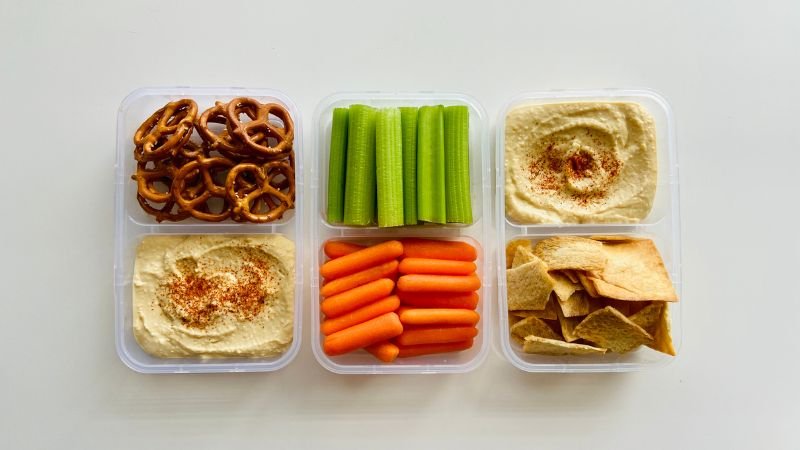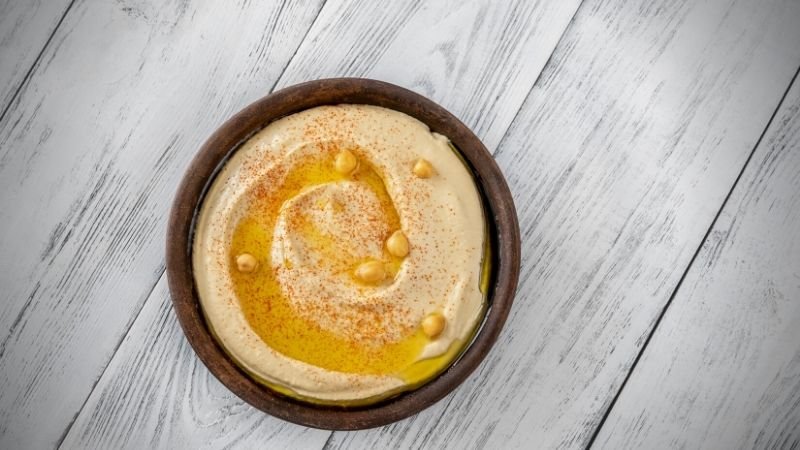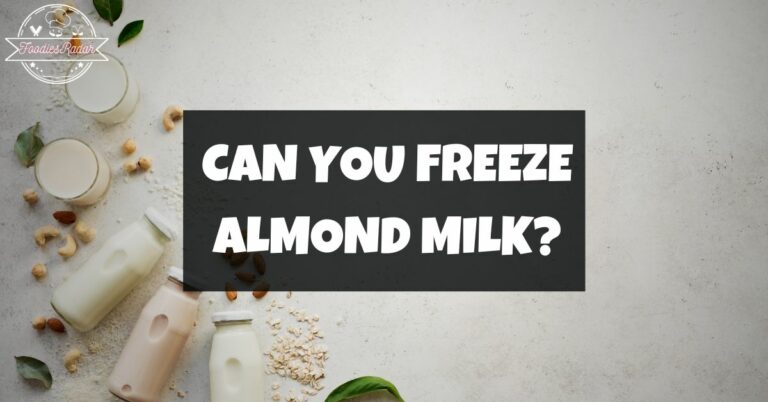
Hummus is not only a filling snack full of vitamins and protein, but it is also one of the most adaptable dips out there.
Hummus pairs well with various foods, whether you want chips, pita, or vegetables. And now that dessert hummus has been included; snack options are limitless.
Hummus is often a concoction of chickpeas, olive oil, tahini, lemon juice, and garlic. It is best eaten immediately after preparation and stored in the refrigerator. However, you can freeze it later if you have a lot left over (or buy a few extra containers).
You can put hummus containers that have not been opened and that you know you won’t use for a while straight into the freezer.
However, if you’ve already started eating the dip, you’ll need to transfer any leftover hummus to a freezer-safe container.
The hummus can then be frozen for up to four months, but keep in mind that the longer it freezes, the more likely it is that the flavoring will change when it is thawed.
Can You Freeze Hummus?
You can, indeed, freeze all hummus. You could find that some recipes and brands freeze better than others because they are different.

Hummus without flavorings like garlic or roasted red peppers tends to freeze a little better. Because store-bought hummus has preservatives that shield it from freezing and thawing, you may also discover it is better than homemade hummus.
The simplest way to freeze hummus is to place it in its original container in the freezer simply. Put the container in a freezer bag to avoid a mess and shield your hummus from freezer odors.
Is It Safe To Freeze Hummus?
You have a large quantity of hummus that you have either purchased or manufactured, and you are still determining if you will be able to consume it all before it expires. It’s as simple as 1-2-3 to freeze hummus, so don’t worry!
For up to four months, keep hummus in the freezer. The taste and consistency of hummus may alter when it is frozen; however, freezing hummus can be very useful and reduce food waste. Keep scrolling to find out how to freeze hummus and when to defrost it.
Place hummus and a thin layer of olive oil in a freezer-safe container. Try adding spices or fresh ingredients to improve the flavor of hummus that has been thawed.
How To Freeze Hummus?
Use a safe container for the freezer: When storing humus in the freezer, ensure the seal is airtight and use a safe container for the freezer. Flavor contamination from other freezer odors can result from any air leak.
You can put as much dip in the container as you want, but leave a little room at the top because it expands when frozen.

Also, try not to freeze more than 12 ounces in a single container so that when you move it from the freezer to the fridge, it will thaw more evenly and quickly.
Conserve Water: Top the hummus with a thin coating of olive oil. You don’t want a super oily dip when you thaw it back out, so don’t use too much!
When freezing hummus is a great way to prevent moisture loss, especially since olive oil is already in it, so it won’t change the flavor!
What Is The Best Way To Freeze Hummus?
- The best way to freeze hummus is in its original container: With a few exceptions, you can freeze store-bought hummus in its original container. First, check that the container still has about a half-inch space. Second, moving the hummus to a different container will keep it freshest if it doesn’t have an airtight lid or there is little left.
- Individual Servings Another way to freeze hummus is to divide it into individual servings. This is ideal for meal preparation and prevents food waste. Alternatively, you can spoon individual servings onto a baking sheet lined with foil and freeze them in a zip-top freezer bag or, even better, a Stasher bag that can reuse.
Make sure to keep in mind that food expands when frozen, regardless of the container or method you choose. You can prevent a mess by leaving a half-inch of space in the container.
Related guides:
- Can you freeze cheesecake
- Can you freeze bananas
- Can you freeze buttermilk
- Can you freeze watermelon
How To Thaw Frozen Hummus?
Hummus’ flavor and texture might change with freezing and thawing. Add a little olive oil gradually and whisk in case your thawed hummus seems dry.
Consider adding minced garlic or onion, fresh herbs, fresh lemon juice, or dried spices like za’atar, sumac, or oregano, if you feel the flavor is lacking—freezing can make food seem bland.

Tahini, chile oil, or aromatic olive oil are all excellent additions. To improve the flavor and texture, you can also add some canned chickpeas that have been rinsed and drained.
When thawed, you can use hummus in all the same dishes as when it’s fresh, such as sandwiches, roasted vegetables, chicken and vegetables in a bowl, baked dips, and salads.
How Long Does Frozen Hummus Last?
Once opened, hummus is a perishable food item that only keeps well in the refrigerator for a limited period. The shelf life of hummus and how to identify whether it has gone bad are explained here.
Whether homemade, shelf-stable, or refrigerated, hummus should be kept inside for up to two hours. It’s recommended to spoon out the quantity of hummus you require and keep the rest to preserve your remaining servings.
While hummus from the store has an expiration date, this is irrelevant once the product has been consumed. After opening, store-bought hummus is kept in the refrigerator for seven days.
Does Hummus Freeze Well?
To avoid freezer burn when using freezer bags, wrap the hummus and push out as much air as possible. Hummus should be slowly thawed.
Never refreeze hummus after it has thawed. This won’t significantly change the taste and texture if you let it thaw overnight. Because bacteria will proliferate, will ruin the flavor and texture, and might even be deadly.
You can freeze smaller portions of hummus. If you anticipate using only some of the hummus after it has been thawed, plan and freeze it in smaller amounts.
Final Verdict:
Depending on its manufacture, store-bought hummus may have a longer shelf life than handmade hummus.
But in the refrigerator, both kinds should remain fresh for up to 7 days (for completing prepared hummus, this applies once the container is opened).
When eating thawed hummus, be prepared for a minor change in flavor and consistency. During the freezing and defrosting processes, the water in the hummus expands and contracts, changing the taste and texture.
Hummus should not be defrosted at room temperature as it may deteriorate. Hummus is perishable and prone to deterioration, just like any other meal. It’s time to discard a product when it no longer tastes or smells like it was first made or acquired.









